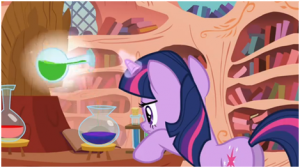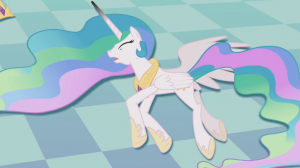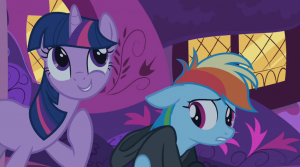Posts Tagged "Okonkwo"
Reading Chinua Achebe Part 3: UC Irvine
Click to read:
Part 1: High School
Part 2: Community College
At UCI some of the writers were easy to spot early on. If someone was helpless in the literature class, they were probably a writer. Sometimes they would defunct a reading by saying “That’s not what writers do,” instead of, you know, something not stupid. They had trouble with the type of thought required for literary criticism/critical theory. They were developed to think more from an angle of aesthetic criticism. In community college, critical theory and aesthetic theory seemed to go hand in hand. I didn’t realize that they had any difference or that there was a time and a place for each. I’ll discuss this more in the future.
In this quarter I was just starting to learn to separate my two parts of theories of literature. This should have been easy. I was an argumentative Muslim-agnostic living in a Christian country in a very divisive period. I also had the luxury of being able to pass for Middle Eastern, Hispanic, and/or Caucasian (Yes, even with a name like Sharif. *shrug* People are dumb?). When people were arguing about the benefits of locking Muslims up for no reason, then I couldn’t argue like an Arab (I’d sound biased). I’d have to argue like a white Republican American Christian. I’d point out contradictions of their arguments with the beliefs they testify to like a combination of Ditto and Pheonix Wright. The way most people code switch from the way they speak at home to the business casual vernacular they speak at work, I could code switch between ethos. Like Super Nintendo cartridges. Off. Pop. Blow. Swap. On. Let’s play.
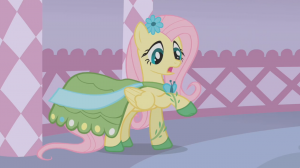
“‘Lock up all the Muslims?’ Where’s that Christian-American ethos cartridge? *blow* I think at a point we need to trust God to protect us. If we commit sins against the innocent due to our fear, then it shows a lack of faith in Christ. In addition, I believe that the terrorists can only destroy our buildings, but the American spirit of freedom can only be destroyed by jingoism and fear stirred up in ourselves. How can you talk about protecting freedom while talking about incarcerating the innocent? How can you be American, but advocate religious persecution? We must walk the careful line between vigilance and oppression. Of course, whatever you believe is fine, because this is America.” -Bush Administration Sharif
However, separating literary criticism from aesthetic criticism was like separating the water from Kool Aid. Especially when you don’t know that there is a such thing as aesthetic theory. It was mostly just “How do I reconcile what this person says about literature with what this person says.” For survival purposes this required a bit of Schizophrenia. Think this way on Mondays and Wednesdays; think another way Tuesdays and Thursdays. This process took me years of confusion, internal rhetoric, fights with professors, fights with grad students, looking like a jackass, fear, anger, hate, and suffering.
I read Things Fall Apart twice this quarter. The first time I read it was to refresh the story in my mind for class discussion, the second time was to write an essay.
In retrospect I realized that the first time I read it at UCI, I read it very much from a critical theory standpoint. The Igbo culture was a microcosm of the greater struggle of Africa being caught between cultures (though perhaps too obvious, general, possibly not true, and worst of all not enough to make a paper on).
When it was essay writing time, I reread and started hunting for quotes and such. This time, for some reason, I was looking more at the aesthetics and techniques of the book. The language was new for me. I guess this was the first time I really looked at the prose. It was clear and direct, simple yet elegant. There was no pretension trying to wax as wisdom. It was just wise. Direct, effective, adaptive, and powerful like Bruce Lee’s approach to martial arts, but with words. Things Fall Apart is a book as much to be experienced as it is to be read, analyzed, and understood. The language doesn’t have to create a faux complexity and play a game of “hide the secret;” the complexity comes from the honesty, empathy, and understanding from the author.
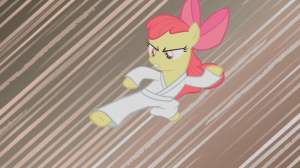
“The best form is to have no form. Unless it is poetry, then the best form is the villanelle.” -Bruce Lee (not really)
I noticed the use of folklore, which was a minor theme throughout other works we were studying. So I wrote an essay on that. I said how the story of the tortoise and the birds was a microcosm of the greater novel. I further went on to point out how folklore and a character’s relationship to it was used for characterization and to set up various plot points and relationships including relationships with one’s culture.
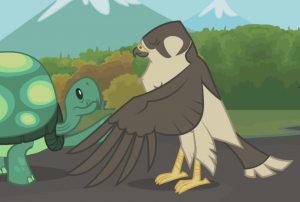
“Let me have some feathers so I can go to the bird feast in the sky. Seriously quit being a dick.” – Things Fall Apart (not really)
I was super excited for this essay, which is a bad sign I’ve learned. I have a passion for aesthetic theory, which means that it isn’t something I should turn into the critical theorist TA.
I remember right before the essay was due, many of my classmates were at a complete loss of what to write about since there were no prompts. So I started handing prompts out on subjects I saw but wasn’t passionate about. Write about the effects of colonialism on women as described by Wole Soyinka in “The Lion and The Jewel” and Mirama Ba’s So Long a Letter. Use Ngũgĩ wa Thiong’o’s Weep Not Child and Tsitsi Dangarembga’s Nervous Conditions to talk about the role of Western education in African self-awareness (Helpful hint, bring in the teacher’s book Decolonizing The Mind).
These prompts were very literary critc-y. Everyone who took one of my prompts got an A or an A-. I got a B- on my paper! Apparently, an ethnocentric feminist gaze of African polygamy had more legitimacy than discussing the use of African culture to show the greater book as a macrocosm of a piece of folklore.* Although, it might have helped streamline my paper if I actually knew the words “microcosm” and “macrocosm” when I was 21.
Speaking of folklore, I think I’ll end this in an Aesop. I was the same human being reading the exact same copy of a book, yet I wasn’t the same person. My worldview had shifted and so did my view of the world created by Achebe. If you’re a writer trying to control exactly how people read your book, you are fooling yourself and wasting your time. People will experience their own book, movie, comic, play, poem…
*It also might have helped to have incorporated Keat’s concept of the gyre, which today I still don’t quite understand. It’s like a self-referential vortex…kinda? I’m starting to remember why I didn’t try to put that in the essay.
Read MoreReading Chinua Achebe Part 2: Community College
I was taking a cultural anthropology class where we had to read an ethnography as one of our final assignments. I read Tales of the Shaman’s Apprentice by Mark Plotkin which is another book in the “which books had a profound impact on you.”
However, when we gave our presentations someone did her presentation on Things Fall Apart which is a book of fiction. I was kind of upset that I had missed a chance to do a lot less work and reread a book I already knew revisit this amazing text.
Despite my workload, I decided to reread the book anyway. The book changed. It became a real world example of how the facts of human nature I had learned from my anthropology class could directly apply to literature. Now the book was about ethnocide, the loss of one’s culture, the power one’s culture has over our definition of self and over our aspirations, and finally how utterly lost and unstable one can become when all of this is taken away. When conformity is demanded of a society’s behaviors, when a society’s ideologies are challenged and abandoned, and when this creates changes in that society’s economy and wealth, then what that can do to the individual.
The common reading of the end of Things Fall Apart is that Okonkwo is like Judas who hangs himself for being responsible for the death of Christ, represented by the Christian. Usually an allusion makes someone evaluate the work through the context of an outside work. Achebe’s allusion worked in both directions for me, since the typical way of reading this scene seemed not quite right. I reevaluated Judas through the scope of Things Fall Apart just as much as I thought of Things Fall Apart through Judas. Did Judas kill himself out of guilt? Or did he kill himself because there was a God who loved him and now he is dead?
In the end Okonkwo’s God is dead: his traditions, his worldview, and everything. Okonkwo is treated well by the Igbo traditions and religion. When he kills the Christian, there is the epiphany that the benevolent God is dead, except it isn’t through the death of the missionary, but through the reaction of the crowd. Their inability to stand up for their way of life against a seemingly unstoppable force shows him that the gods have been acculturated to death.
It would be easy to say that Okonkwo was a victim of an evil, invasive culture, but Achebe didn’t seem to do this. Things Fall Apart seems more descriptive than prescriptive. Here are the things, sometimes they are fortunate and sometimes they aren’t. He could have ignored the mutilation of stillborn babies or the throwing away of twins in the Evil Forest. But the Igbo traditions, like all traditions, have an aspect of oppression as well as liberation; it depends upon who one is and the circumstances. This is definitely a theme to Things Fall Apart (hear that high schoolers Googling for cheats on your homework?).
With this theme, I learned Cultural Relativism can actually help create a greater and more complex plot, world, and characters. I learned a writer has more power being an anthropologist than being a nagging parent demanding the world to conform and behave. On top of that simply describing a world using your world view, people can’t help but see the same flaws you do.
Read MoreReading Chinua Achebe Part 1: High School
So like many people I learned about the death of Chinua Achebe through Facebook, and then confirmed it with Wikipedia.
I’ve only read three things by Achebe: Things Fall Apart, a short story I hated and don’t remember, and some essays that gave me mixed feelings.
Things Fall Apart is one of my “which books had a profound impact on you” books. I’ve read it about 4 times. The only long form piece I’ve read more is Shakespeare’s “Hamlet.”
High School: Okonkwo was me. Full of rage and ready to pounce on anything that would give me the opportunity to fuck it up, verbally or physically. I once had a place of status among my friends, but I learned what depression is and began questioning my faith in God. This was around the time many of my Catholic friends were going through confirmation. I talked with them hoping that they could help me with my crisis of faith, which I don’t know if any of you have had this before, but it hurts. But my questions were echoed to members of my friend’s churches, and they were told that I was “the devil trying to lead them from the path of Christ.” I wasn’t the devil, but I was burning into impotent ash. I was a kid who was lost, confused, and in pain, but I guess that’s just as dangerous to people whose faith is no stronger than wet newspaper.
Religion had seemed to take away all of my friends. My best friend who taught me how to make inappropriate jokes decided that he was going to become a priest. And apparently one who wishes to be like Christ cannot hang out with sinners.
My grades were falling. Nothing made sense. I was fighting with my family, friends, enemies, strangers… everyone was my antagonist. The people who understood me seemed far away. They weren’t in the honors classes. Yet this fucking book understood. The people I skated with understood. They appreciated that I was the voice of reason while at the same time down to punch someone in the face. My English teacher understood and came to my rescue when things got out of hand (Forgive me, but I’m not ready to tell that story yet).
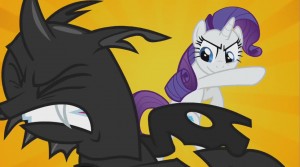
“I’m not violent. I’m just teaching a lesson about not being a punk-ass bitch to a tactile-kinesthetic learner.” -Adolescent Sharif
I was a slow reader, still am. I needed longer with the book before returning it to the library. My English teacher knew that usually I would just prematurely surrender the book. This time I wanted to finish it. My English teacher was understanding. The best English teachers are. I think this is why Holden trusts the English teacher in Catcher in the Rye. This is why the written word won’t die.
I went to New Mexico with my mom for a few days. My mom told me to use this as an opportunity to relax but also catch up on the school work that had seemed too pointless and overwhelming during my state of depression. I took Things Fall Apart with me. The TSA opened my bag, because one of their sensors said my public school textbooks had suspect chemicals, which were later cleared as not being a bomb. I told my English teacher about this, and she told me to throw the book away. I told her that the book seemed just fine. She then told me to keep it and pretend we had to throw the book away. Then she pulled out a little card with student’s names and book titles. Next to mine she crossed out the words Things Fall Apart. It’s on my bookshelf, just behind my green screen.
Reading Chinua Achebe Part 2: Community College
Read More
